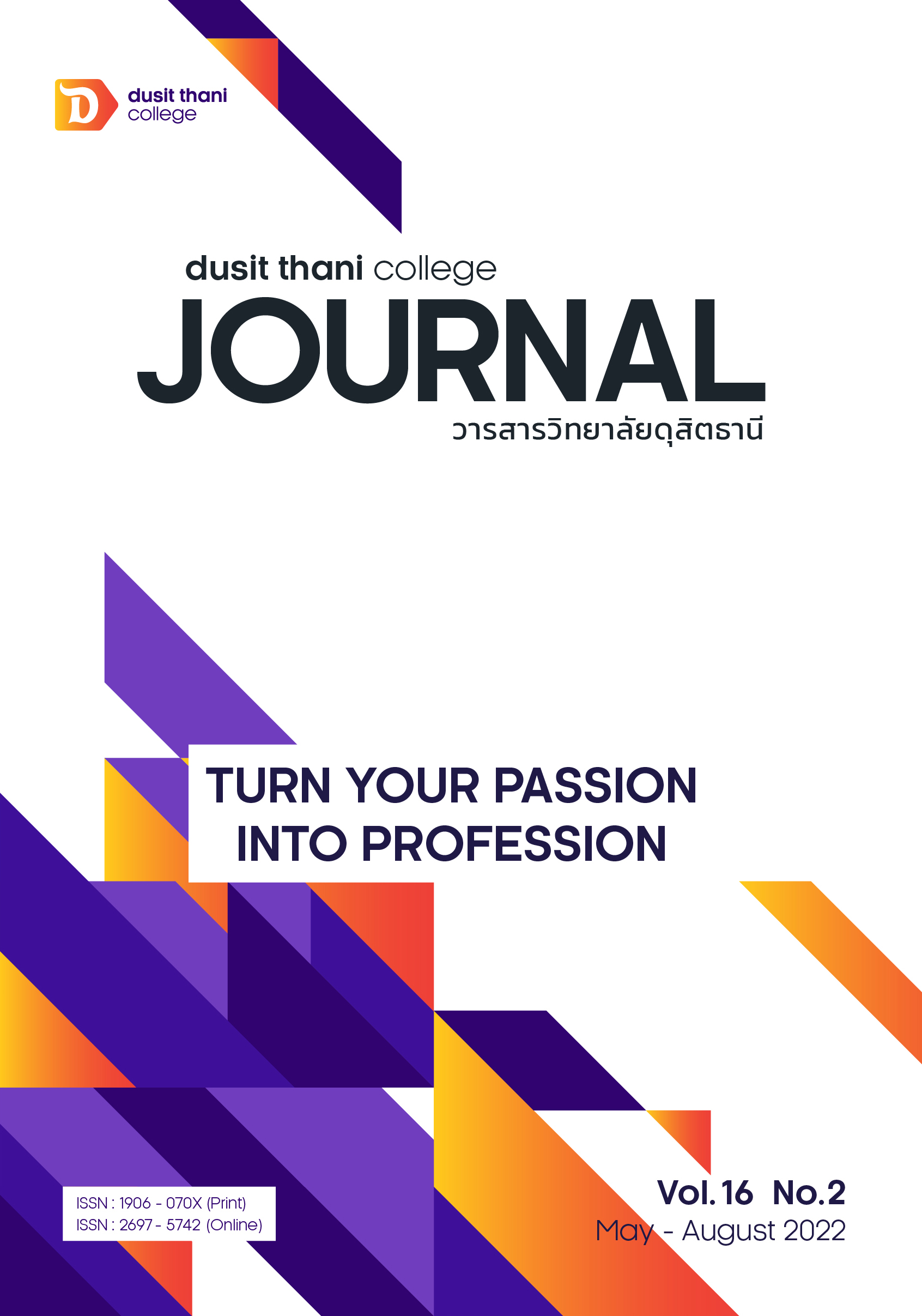Potentials of Sustainable Integrated Tourism Development in Nakhonratchasima Province
Main Article Content
Abstract
The research aimed to 1) conduct Tourism Resource audit in Nakhonratchasima Province,2) to analyze the internal and external environment of sustainable tourism development in this area,3) and to find the potentails of sustainable integrated tourism development of this province. This research used qualitative research method, using these research instruments : community study checklists, tourism resource audit form and indepth-interview form with 32 key informants devided into four groups.The results showed that outstanding natural attractions are Khao Yai National Park and Wang Nam Khiao ; Cultural attractions are Phimai Historical Park and Thao Suranaree Monument; Events are Phimai Festival and BBQ Korat Festival; Activities are trekking and agrotourism activities; Services are public transportation, accommodations, and restaurants. The results from internal and external context study showed that strength: Nakhonratchasima province is an attractive location for tourists; Weakness: lack of marketing plan, and lack of destination management system; Opportunity: it is the center and gate way for tourism in several and logistic; and threat: world and national academic regression, styles and tastes of tourists which continually change. There are diversities of natural attractions in natural resource competency. Competency of sustainable resource management can be defined by explicit integration tourism strategic plan. For community participatory competency, residents can participate in natural and cultural resources conservation. Competency of learning activity creation can be suitably created to touch the aims of tourism area.
Article Details

This work is licensed under a Creative Commons Attribution-NonCommercial-NoDerivatives 4.0 International License.
Article Screening Policy
- All research and academic articles to be published must be considered and screened by three peer reviews in the relevant field / article.
- All articles, texts, illustrations and tables published in the journal are the personal opinions of the authors. Editors don't always have to agree. And no responsibility whatsoever is the sole responsibility of the author.
- The articles to be published must never be published. Where did you first publish? And not in the consideration of other journals If the audit found that there has been a duplicate publication It is the sole responsibility of the author.
- Any article that the reader sees as being plagiarized or impersonated without reference. Or mislead the work of the author Please let the journal editor know it will be your greatest blessing.
References
Aladag O.F., Koseoglu M.A., King B. & Mehraliyev F. (2020). Strategy implementation research in hospitality and tourism: Current status and future potential. International. Journal of Hospitality Management, 88, 102556.
Chantavanich S. (2011). Data Analysis in Quatitative Research. Bangkok : Chulalongkorn University. (in Thai)
Dhamabutra P. (2017). Tourism Element Handout. Bangkok : University of Phayao. (in Thai)
Junead.J, Jamnongchob.A and Manirochana N. (2018). Experiential tourism development at Watthana Nakhon District, Sa Kaeo Province. Journal of Liberal Arts, Prince of Songkla University. 10(2), 156-187. (in Thai)
Kantaau Chu. (2017). Commuity Based Tourism : A Case Study of Baan Rong Fong, Rong Fong sub-district, Mueang Phrae district, Phrae province. Thesis, Chulalongkorn University. (in Thai)
Lincharearn A.(2011). Data Analysis and presentation in qualitative research. Journal of Educational Measurement. Mahasarakham University. 17(1), 17-29. (in Thai)
Mathieson, A. and Wall, G. (1982). Tourism: Economic, Physical and Social Impacts. Harlow: Longman.
Ministry of Tourism & Sports and Designated Areas for Sustainable Tourism. (2016). Strategic plan on community-based tourism 2016-2020. Bangkok: Ministry of Tourism and Sports and Designated Areas for Sustainable Tourism Administration (Public Organization). (in Thai)
Namsirikul, K. (2000). Strategy & Business. Bangkok: Chulalongkorn University Printing House. (in Thai)
Noosut, K. (2019). Development of Community-based Tourism Based on the Grassroots Economy Concept. Local Administration Journal, 12(3), 481-496. (in Thai)
Pengnorapat, U. (2018). The Strategies for the Development of the Cultural Tourism Potentiality in Sisaket Province. Journal of Thai Hospitality and Tourism, 12(2), 28-43. (in Thai)
Pongwiritthon, R. and Syers, K. (2016). Guidelines for Sustainable Chiang Mai Tourism Development According to the Attitude of Tourists. Journal of Humanities and Social Sciences Thonburi University, 10(22), 61-66. (in Thai)
Qiufen Zhang. (2012). Research on Tourist Attractions Performance Promoting Method Based on The SWOT Analysis Method, SciVerse Science Direct, IERI Procedia 1(2012) 254-260. doi: 10.1016/j.ieri.2012.06.040.
Rachataphuwin Bhu. (2017). Strategic Plan for Integrated Sustainable Tourism Development in Nakhonratchasima Province. Thesis of Ph.D.(Tourism Management), University of Phayao. (in Thai)
Rittikoop W. (2018). Community-Based Learning : Effective Pedagogy Strategies for Teachers In The 21St Century. Graduate School Journal, Chiang Rai Rajabhat University. 11(3), 179-191. (in Thai)
Sarobon, S. and Wongtabtim, U. (2003). Community-Based Tourism Conceptualized and Experienced from North Thailand. Chiang Mai. Vanida Press.
UNWTO. (2015). Retrieved September 11, 2017, http: // www2.unwto.org.


